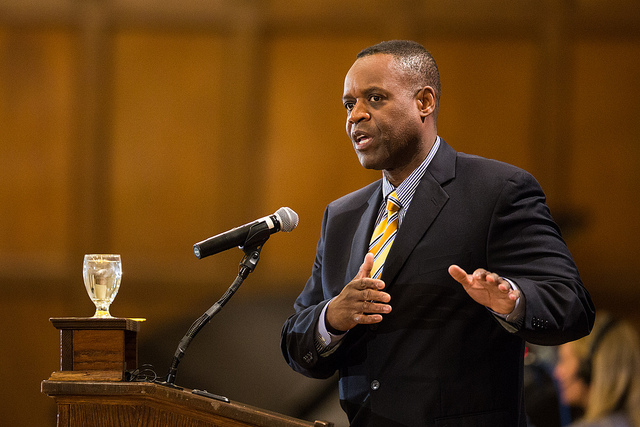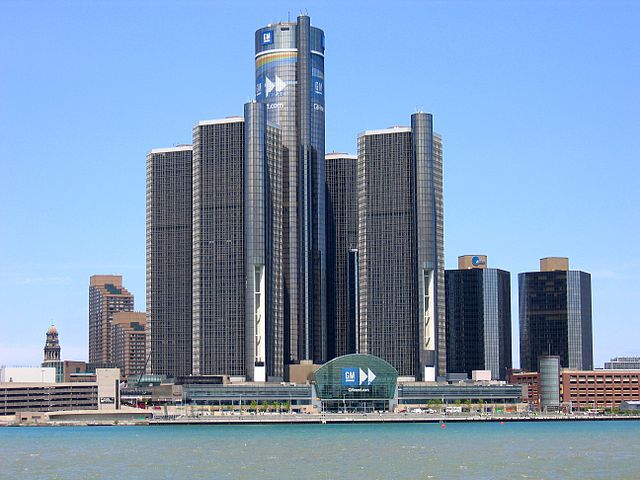
When Detroit bankruptcy judge Steven Rhodes considers whether to approve the city’s sweeping debt-cutting plan, he will take into strong consideration what the city’s voters had to say. He’ll see that Detroit’s pension holders overwhelmingly approved the ballot measure today which cut pension benefits and cost-of-living-adjustments, among other things.
But he’ll also see the discontent coming from another group receiving much less media attention: Detroit’s creditors. Those include banks, hedge funds, individual investors and average Detroit citizens who hold the city’s bonds, which have become worthless. Some of these bondholders are going to be paid back in full, but others won’t; Detroit is offering as little as 10 cents on the dollar to investors who own certain bond classes.
Needless to say, the owners of those bonds aren’t happy. And they expressed that discontent by voting “no” on the ballot measure that passed today. Still, Judge Rhodes will consider their opinions when ruling whether Detroit’s restructuring plan is legal.
There are twelve classes of bonds, and the Detroit Free Press has a fantastic breakdown of how those classes voted and their unique situations. You can read the whole thing here, but here are some of the more interesting ones:
Class 1: Water and sewer bondholders
Who owns or controls this debt? Major bond insurers, individuals and financial giants such as Black Rock
What they’re owed: $5.8 billion
The city’s offer: 100%
Back story: This debt is secured, which means it’s protected from cuts. Nonetheless, mediation talks between the city and the bondholders have tarried without a settlement. Why? Because the city is trying to replace the bonds without paying all future interest.
How they voted: 119 sub-classes of bondholders voted no, while 32 voted yes.
Classes 2-4, 6: Secured general obligation bonds, other secured claims, U.S. Housing and Urban Development loans, parking bonds
Who owns or controls this debt? A variety of investors (Classes 2-3, 6); Uncle Sam (Class 4)
What they’re owed: $494 million (Classes 2-3); $90 million (Class 4); $8 million (Class 6)
The city’s offer: 100%
Back story: This debt has rock-solid legal standing and the city can’t get out of it.
How they voted: These creditors don’t vote because they are receiving full payment.
Class 7: Limited-tax general obligation bonds
Who owns or controls this debt? Ambac Assurance and Black Rock control most of it, with Syncora holding a smaller amount.
What they’re owed: $164 million
The city’s offer: 34%
Back story: Black Rock and Ambac agreed to a tentative settlement, but all of the terms have not been released.
How they voted: Bondholders representing 99.8% of the claims and the votes rejected the plan — likely because the settlement has not been finalized.
Class 8: Unlimited-tax general obligation bonds
Who owns or controls this debt? The lion’s share is controlled by bond insurers Assured, Ambac and National Public Finance Guarantee.
What they’re owed: $388 million
The city’s offer: 74%
Back story: The bond insurers agreed to a deal to allow the city to divert 26% of their debt to low-income retirees who face pension cuts. But this deal will face legal challenges during the trial.
How they voted: 87% of bondholders representing 97% of the debt voted “yes” to approve the deal.
Class 9: Pension obligation certificates of participation (COPs)
Who owns or controls this debt? Syncora and FGIC insured the debt, which is mostly owned by European banks and five major hedge funds that recently acquired about half of it
What they’re owed: $1.473 billion
The city’s offer: 0% to 10%
Back story: The fiercest fight in the bankruptcy is here. Syncora and FGIC argue they are being unfairly treated and have pushed for the City of Detroit to consider selling Detroit Institute of Arts treasures to pay their debts. The hedge funds have also objected to the city’s proposal.
How they voted: It was an emphatic “no,” with not a single “yes” vote.
Class 10: Police and Fire Retirement System pensions
Who owns or controls this debt? Police and fire retirees and active uniform employees who are vested in their pensions
What they’re owed: $1.25 billion in unfunded future pension promises
The city’s offer: 100% payment of their monthly pension checks and a reduction in annual cost-of-living adjustment (COLA) increases from 2.25% to 1%.
Back story: The U.S. government-appointed Official Committee of Retirees, a major retiree association and the pension board representing the police and fire retirees reached a deal with the city to recommend a “yes” vote. With a “yes” vote by Classes 10 and 11, the city would agree to transfer the DIA to an independent charitable trust in exchange for foundation, state and DIA donations directed toward pensions.
How they voted: 82% of police and fire pensioners representing 82% of the debt voted “yes” to support the deal.
Class 14: Other unsecured claims
Who owns or controls this debt? A variety of creditors, including people who sued the city and won settlements, as well as city vendors that had contracts canceled
What they’re owed: An estimated $150 million
The city’s offer: 10% to 13%
Where they stand: This group of creditors is not well coordinated, but it includes a major Macomb County water claim expected to vote no.
How they voted: This class voted no by a 53-47% margin in number and by a 61-39% margin in total claims.
There are two ways this could play out:
1) Detroit reaches a settlement with creditors, likely paying them around 10 cents on the dollar for many of their bonds.
And, if a settlement can’t be reached:
2) Judge Rhodes will determine whether to force the creditors to accept cuts.
The trial starts next month, but likely won’t be finished until September.



